|
|
|
|
| Adam Carr's Election Archive
|
Australian federal election, 2025
Division of Bass, Tasmania
Named for: Dr George Bass (1771-1803), explorer of the Australian
coast and of Tasmania
Northern Tasmania: George Town, Beaconsfield, Launceston, Newnham, Scottsdale
Enrolment at 2019 election: 76,532
Enrolment at 2022 election: 79,322 (+03.8)
1999 republic referendum: No 62.8
2018 same-sex marriage survey: Yes 61.7
2023 Voice referendum: No 61.7
2007 Labor majority over Liberal: 1.0%
2010 Labor majority over Liberal: 6.7%
2013 Liberal majority over Labor: 4.0%
2016 Labor majority over Liberal 6.1%
2019 Liberal majority over Labor 0.4%
2022 Liberal majority over Labor 1.9%
Status: Very marginal Liberal
Liberal two-party vote 1983-2022
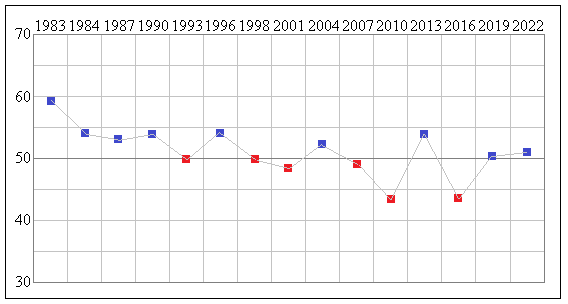
2022 results
Statistics and history
Announced candidates:
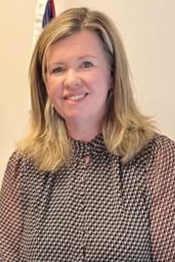 |
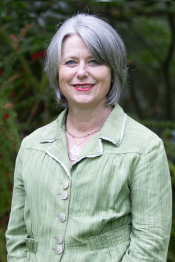 |
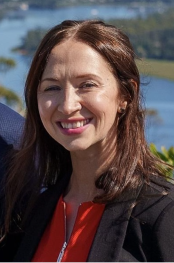 |
Bridget Archer
Liberal Party |
Charlene McLennan
Aust Greens |
Jess Teesdale
Aust Labor Party |
Caroline Larner (Citizens)
Division of Bass
Bass has existed since Tasmania was first divided into electorates in 1903, and has always consisted of the city of
Launceston and some surrounding rural areas - it is one of the least changed of the federation seats. The seat has
always been politically marginal and has frequently changed hands: it has had 17 members, the highest number
of any seat. Only three of its 15 previous members have departed undefeated. In recent years it has become known as
"the ejector seat."
Bass has a relatively
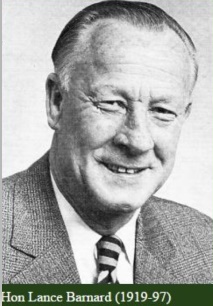 low income level, which should tip it towards Labor, but this is offset by its very low level of people born in non English
speaking countries - it is one of Australia's most monocultural seats. The city of Launceston has some strong Labor areas, and
George Town at the mouth of the Tamar is also traditionally a Labor town. These areas are offset by the middle-class suburbs
of Launceston and most of the rural areas to the north and east.
low income level, which should tip it towards Labor, but this is offset by its very low level of people born in non English
speaking countries - it is one of Australia's most monocultural seats. The city of Launceston has some strong Labor areas, and
George Town at the mouth of the Tamar is also traditionally a Labor town. These areas are offset by the middle-class suburbs
of Launceston and most of the rural areas to the north and east.
Lance Barnard won Bass in 1954 and was Deputy Prime Minister in the Whitlam
government. His successor
Kevin Newman was a minister in the Fraser government.
Warwick Smith held the seat twice and was a minister in the
Howard government, before being defeated by
Michelle O'Byrne in 1998. In 2004
Mark Latham's anti-logging forestry
policy cost Labor the seat.
Michael Ferguson, who defeated O'Byrne, was an outspoken member, but his high profile
was not enough to save him from the anti-government swing in 2007, when he was defeated by
Jodie Campbell.
Campbell did not enjoy being an MP and retired in 2010, when
Geoff Lyons retained Bass for Labor. He was in turn
defeated by
Andrew Nikolic in the large swing against Labor that swept Tasmania in 2013.
Nikolic had a distinguished career in the Australian Army and as a public servant in the Department of Defence,
but he did not prove to be a particularly popular MP, and was easily defeated by Labor in 2016.
Ross Hart, a Launceston lawyer,
won the seat in 2016 but was defeated after one term.
Bridget Archer, Liberal MP for Bass since 2019, worked at the Tasmanian Herbarium from 1995 to 1999, and was a self-employed
farmer from 2008. She was a member of George Town Council 2009-19, and mayor of George Town. During her first term she became
a noted backbench rebel, crossing the floor several times. This is a sure path to popularity in Tasmania, and in 2022 Archer defied the seat's recent history by becoming the first member for more than 20 years to be re-elected. The Labor candidate in Jess Teesdale, The Greens candidate is Charlene McLennan,
a lawyer.
Back to main page
| |